Soilbuild International’s commitment to sustainable industrial development
Numerous well-known industrial property developers have already performed well in Vietnam. How does Soilbuild differentiate itself from other players to engage tenants?
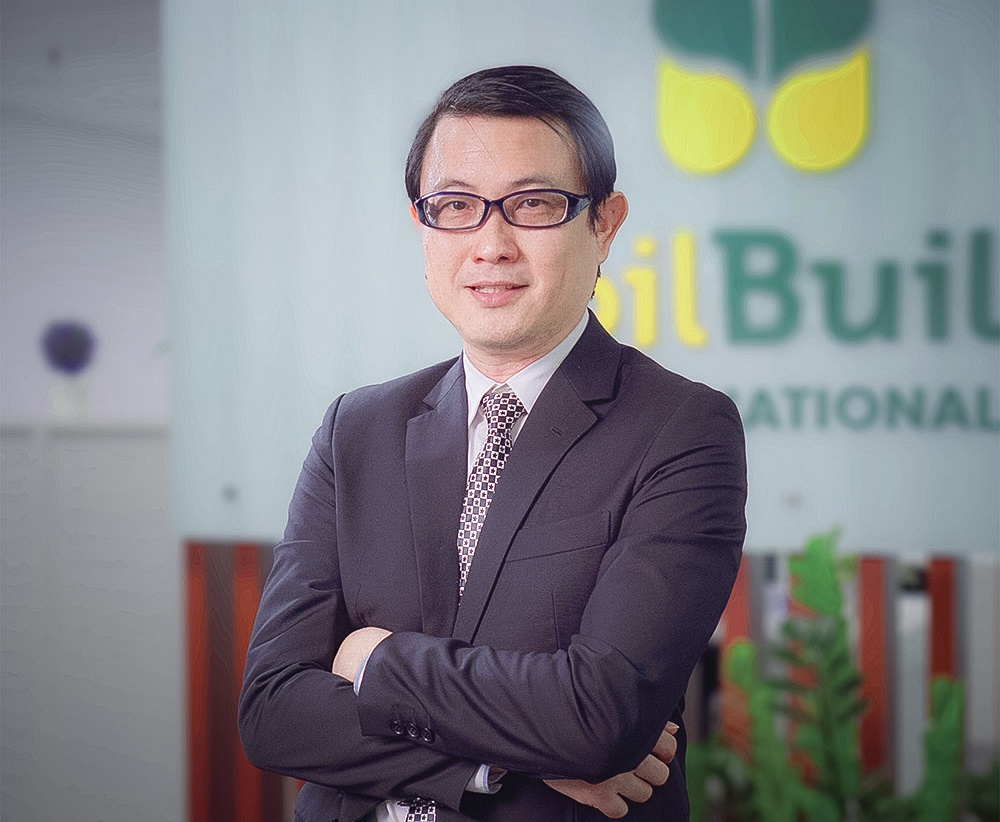 |
| Ben Ding Khoon Yew, general director of Soilbuild International (Vietnam) |
In Vietnam, there is an increasing demand for quality ready-built factories and warehouses aligned with global standards. Soilbuild International is committed to building upon the foundation and experiences that we have accrued over 47 years of developing quality industrial space in Singapore catering to the diverse needs of local organisations and multinational corporations.
Soilbuild aims to deliver more comprehensive and localised support for its prospective tenants by combining its expertise in industrial real estate with its deep knowledge of the country to support its customers’ business growth. Our local team also possess a wide network of partners that can help customers further grow their business.
We provide asset-light and hassle-free solutions that optimise costs and allow businesses to focus fully on operations, and act as their integrated growth partner that delivers quality business spaces with functionality, and timeliness based on strong knowledge of the local market.
Soilbuild’s factory includes flexibility in space design that caters to specific needs, along with dedicated customer support at every stage of the project, and future-proof facilities with sustainable and green features.
What are the potential targets the company is looking to acquire in Vietnam, and why did Soilbuild choose particular provinces to work in?
Vietnam has been benefiting greatly from the shift in the global supply chain, leading to the increasing demand for ready-built facilities with quality that meets the global standards of multinational corporations in Vietnam. Therefore, Soilbuild’s key business model will be developing our industrial hubs with ready-built and built-to-suit facilities, focusing on four key economic regions of Vietnam: north, central, south, and the Mekong region.
Soilbuild is striving to support Vietnam in elevating the manufacturing value add and supply chain quality, attracting high-quality and sustainable manufacturing into Vietnam.
For example, the central province of Nghe An is emerging as Vietnam’s next manufacturing hub, attracting major companies like Foxconn, Sunny, and Goertek. This province’s advantages include a strategic location, efficient logistics, abundant workforce, favourable tax incentives, and efficient and business-friendly local government.
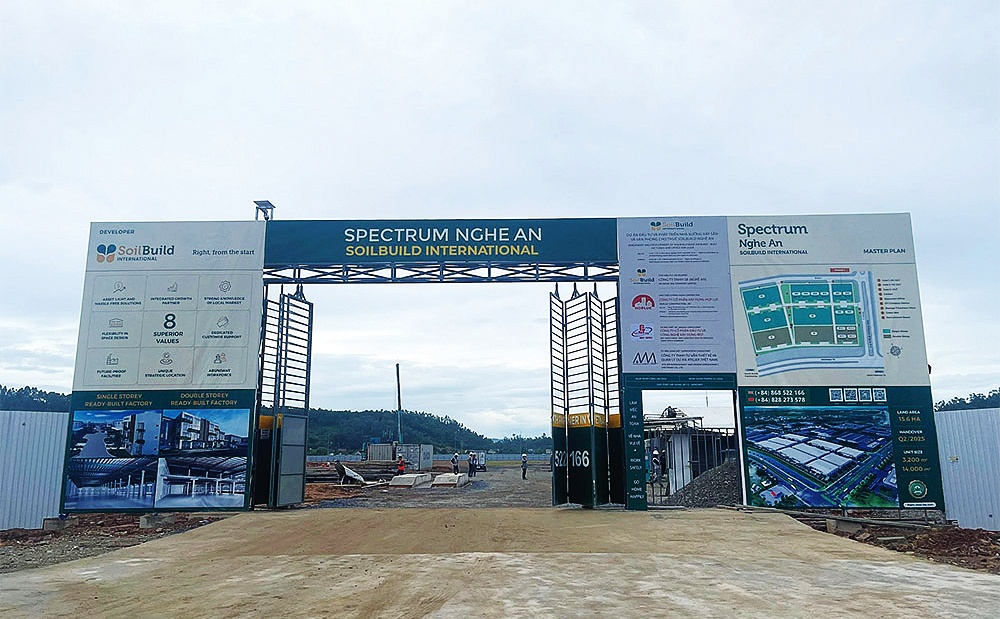 |
| The groundbreaking ceremony of ready-built facility Spectrum Nghe An will be held on August 1 |
Spectrum Nghe An is our maiden industrial project in Vietnam, so this event will mark an important milestone in our development journey in Vietnam.
Moreover, the northern provinces of Bac Ninh and Hung Yen are already known as vibrant industrial hubs in Vietnam’s real estate because of their strategic location, manufacturing ecosystem, excellent infrastructure, human resource talents, and sophisticated local government. Of these, in the first half of the year, Bac Ninh ranks first among all localities with almost $2.6 billion of foreign investment, three-fold compared to the same period last year.
The cost of construction materials and labour is increasing. Which solutions does Soilbuild have to reduce factory construction costs, and how do you assess the adoption of AI and automation to reduce operation costs?
Despite rising labour and construction material costs, Soilbuild stays focused on developing high-end ready-built facilities for lease segments. This means that our labour and construction material costs are higher than the general market. However, to offer competitive rental prices, we have invested significant effort in researching and implementing appropriate design solutions to save construction materials while optimising efficiency, functionality, quality and timing.
In addition, as an integrated growth partner, we bring international sustainability standards and professional management expertise.
Coming from Singapore, we have benefited from the adoption of technologies. Soilbuild International will also extend its strong digitalisation and technology adoption from Singapore into Vietnam from the design development, construction, and operational stages. For example, we will adopt a common data environment for the project team, and use technology for project monitoring, defects checking and security systems, among others.
Through the years, we have been pushing the boundary of our sustainability journey to not only reduce the overall energy consumption and emissions but also secure a more sustainable future and resilient urban landscape for future generations. We are committed to promoting sustainable development throughout Vietnam.
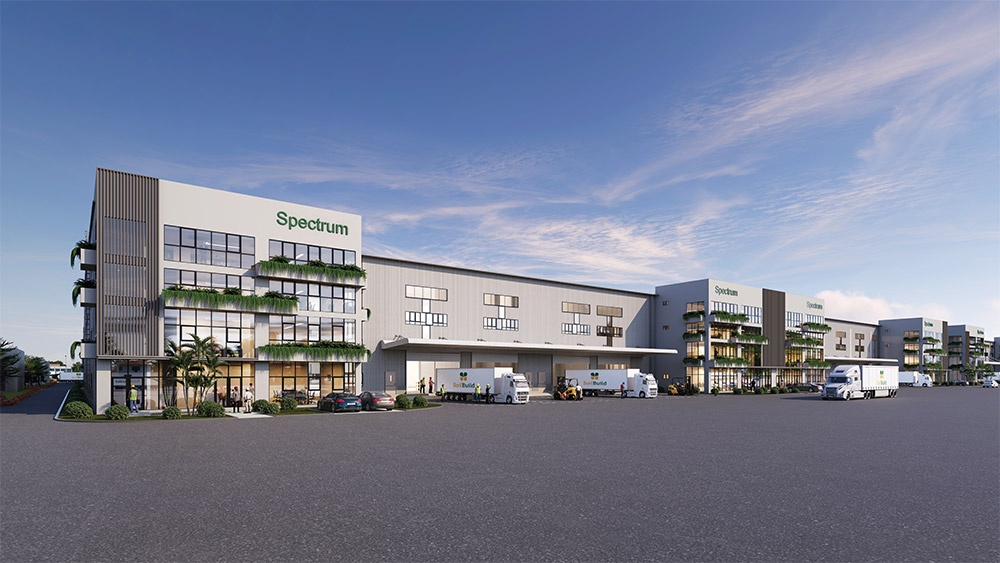 |
How will Soilbuild’s ready-built complexes be equipped to optimise operations for their tenants?
As a forward-looking developer, we strive to incorporate the latest technology in the design, construction, and operation of all our developments. In one of our latest high-spec developments, Tai Seng Exchange in Singapore, we have effectively utilised technology to create a smart and sustainable building that optimises operations for tenants. Tai Seng Exchange has been named Best Industrial Smart Building Development by PropertyGuru’s Asia Property Awards.
Examples of technologies implemented include the new-generation building management system - a state-of-the-art to enhance operational efficiency and sustainability; lift destination control system to improve the security and efficiency of the building’s elevator system by directing passengers to the most appropriate lift; motion sensors in common areas to detect movement and manage lighting and energy usage efficiently; and photocell sensors in a car park to automatically adjust lighting based on natural light availability, further reducing energy consumption.
These technologies reflect our commitment to leveraging innovation to create cutting-edge, eco-friendly developments that meet the needs of our tenants.
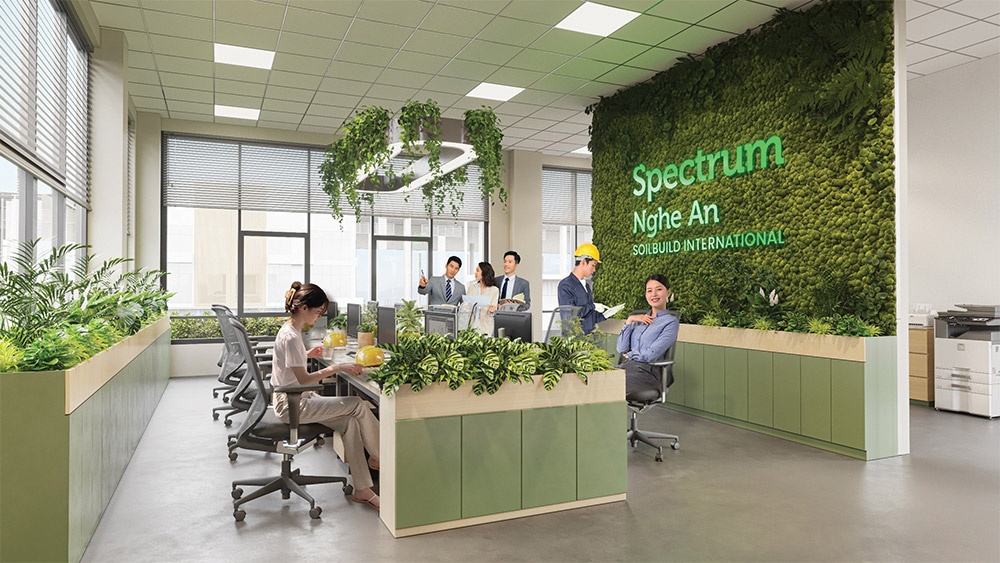 |
How does Soilbuild incorporate environmental, social, and governance (ESG) criteria into its building design and operation?
Soilbuild’s approach to integrating ESG policies into its building design and operations emphasises multiplying the green to ensure that both sustainability and responsible practices are embedded at every stage of the asset’s life cycle – from design and construction to operation and maintenance, and occupiers’ operations.
Innovative design features such as natural ventilation achieved through wind simulation strategy, rainwater harvesting, and green spaces are incorporated to enhance sustainability and promote wellbeing in our latest development, Tai Seng Exchange in Singapore. Sustainable construction practices like selecting eco-friendly materials, utilising low volatile organic compound paint, reducing waste, and implementing efficient building techniques are also incorporated.
In the maintenance of our green buildings, we adopt energy-efficient systems, smart building technologies, and effective waste management strategies. By continuously monitoring and optimising building performance through our new generation building management system, we maximise energy savings and reduce environmental impact.
We also engage with building occupiers through green leases to encourage them to incorporate energy-saving practices, and waste reduction in their operations.
By multiplying the green through the entire life cycle of the asset, Soilbuild not only reduces its environmental footprint but also enhances social responsibility and governance standards, creating a positive impact on the community and the environment.
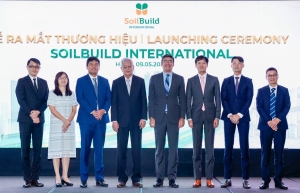 | Soilbuild extends horizons into Vietnam’s industrial real estate Soilbuild Group Holdings, an integrated real estate group in Singapore, has broadened its investment in the industrial real estate segment in Vietnam through its Soilbuild International division. |
What the stars mean:
★ Poor ★ ★ Promising ★★★ Good ★★★★ Very good ★★★★★ Exceptional
Related Contents
Latest News
More News
- Digital shift reshaping Vietnam’s real estate brokerages (December 31, 2025 | 18:54)
- Allen & Gledhill recognised as Outstanding M&A Advisory Firm (December 18, 2025 | 14:19)
- Inside Lego Manufacturing Vietnam (December 18, 2025 | 11:45)
- The next leap in Cloud AI (December 11, 2025 | 18:19)
- Vietnam’s telecom industry: the next stage of growth (December 11, 2025 | 18:18)
- Five tech predictions for 2026 and beyond: new era of AI (December 11, 2025 | 18:16)
- CONINCO announces new chairman and CEO (December 10, 2025 | 11:00)
- How AWS is powering the next-gen data era (December 09, 2025 | 13:14)
- Outlook in M&A solid for Singapore (December 08, 2025 | 10:31)
- Vietnamese firms are resetting their strategy for global markets (December 05, 2025 | 17:04)

 Tag:
Tag:




















 Mobile Version
Mobile Version